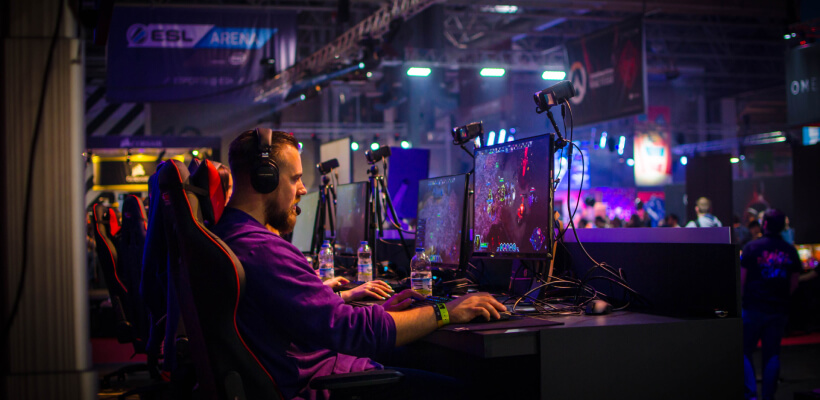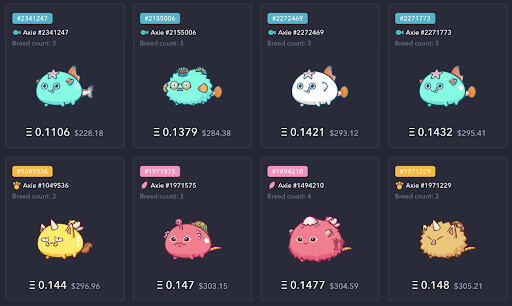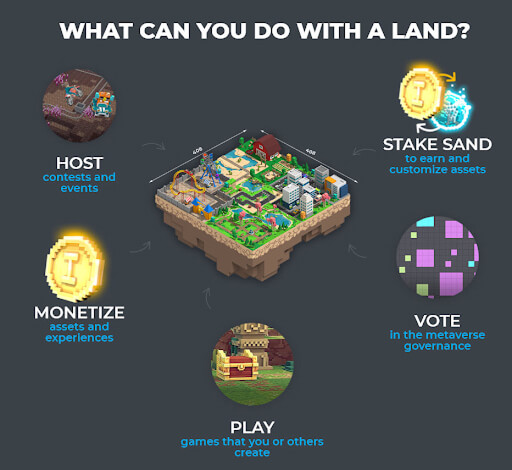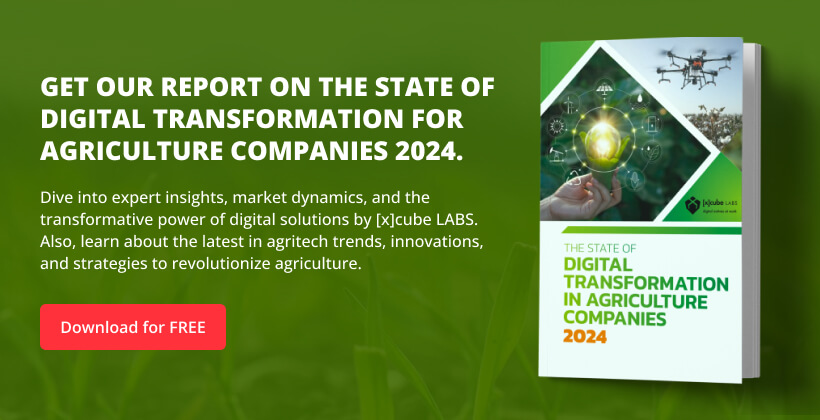The Impact of Blockchain & NFTs in Gaming

The gaming industry has always been an incubator for new technologies and business models. With the advent of blockchain and NFTs, we are witnessing one of the most disruptive shifts yet. These innovations offer players actual ownership of in-game assets and open up a myriad of opportunities for creators, developers, and players alike. This detailed white paper explores how blockchain technology and NFTs transform the gaming ecosystem—from game development and monetization to player empowerment and cross-platform utility.
1. The Evolution of Gaming Economies
Historically, gamers invested countless hours “grinding” for loot and spent real money on cosmetic upgrades—items confined to the platform or game in which they were earned. Traditional models have left players with a sense of limitation: although they could build and customize profiles, the digital assets they accumulated were essentially “locked in.”
Key Data Points and Trends:
- Market Growth: The global gaming market was valued at over USD 160 billion in 2020 and is projected to grow at a compound annual growth rate (CAGR) of around 9% over the next few years. In parallel, the blockchain gaming market—while still emerging—has shown explosive growth, with some estimates suggesting it could reach a market value exceeding USD 3 billion by 2025.
- Player Ownership: In a decentralized system, in-game assets—such as characters, weapons, skins, and virtual land—are tokenized on the blockchain. This means players have verifiable ownership, and these assets can be traded or sold outside the confines of the game. This shift increases the asset’s liquidity and gives gamers a stake in the game’s economy.
2. Blockchain in Gaming
Blockchain technology brings several powerful features to gaming, including transparency, security, and decentralization. Using a distributed ledger, every transaction—from asset creation to peer-to-peer trades—is recorded immutably, ensuring participant trust.
Enhancements Through Blockchain:
- Verified Ownership: Every digital asset’s history is recorded on-chain. This verification system prevents fraud and unauthorized duplication and ensures that ownership transfers are transparent.
- Decentralized Marketplaces: Players can trade assets in open markets, free from the limitations of centralized platforms. Such transparency builds trust and encourages a more vibrant digital economy.
- Scalability Solutions: Platforms like Immutable X have been instrumental in offering gasless NFT transactions. Games like Gods Unchained benefit from these solutions, enabling secure, fast, and scalable trading of in-game assets without the prohibitive transaction fees on other blockchains.

Industry Impact:
Blockchain’s integration into gaming has led to rapid user engagement and revenue growth. For example, several blockchain-based games have reported significant increases in daily active users, driven by the promise of actual asset ownership and potential earnings.
3. NFTs – Making In-Game Items Matter
Non-fungible tokens (NFTs) are at the heart of this transformation. Unlike traditional in-game items, NFTs are unique and indivisible, providing each item with its distinct value and identity.
Why NFTs Matter:
- Unique Value Proposition: Whether it’s a rare skin, an exclusive character, or a one-of-a-kind piece of virtual real estate, NFTs allow each item to have verifiable scarcity and authenticity. This uniqueness opens up new economic models where in-game assets can have real-world value.
- Monetization Opportunities: Games like Axie Infinity have set a precedent. During the COVID-19 pandemic, Axie Infinity became a source of income for many, particularly in regions like the Philippines. At its peak, the game had over 2 million active players and generated more than USD 1 billion in gross revenue by facilitating income through battles, breeding, and NFT trading.

Additional Data:
- Market Expansion: In 2021, the NFT market exploded, with sales surpassing USD 10 billion across various sectors. In gaming, the trend indicates a growing acceptance and integration of NFTs as central elements of gameplay and monetization strategies.
4. The Rise of Web3 Gaming
Web3 gaming represents a paradigm shift from centrally controlled game economies to decentralized, community-driven ecosystems. In this new model, players aren’t just consumers—they become stakeholders and co-creators.
Components of Web3 Gaming:
- Decentralized Autonomous Organizations (DAOs): DAOs empower players to vote on game updates, policy changes, and new features. This democratic approach ensures that the game evolves per the community’s interests.
- Token Economies: Besides rewards, players can earn tokens for their contributions, creativity, and time spent in the game. These tokens can often be traded or used to gain special privileges within the game ecosystem.
- Persistent Identities: With blockchain-backed digital identities and inventories, gamers can carry their assets, achievements, and progress across multiple gaming platforms. This persistence transforms gaming into a lifelong journey rather than a series of isolated experiences.
Real-World Example:
The Sandbox is a prime example of Web3 gaming. Players can purchase virtual land, create custom experiences, and monetize their creations, building an entire metaverse economy. In virtual land sales, platforms like The Sandbox and Decentraland have seen transactions worth millions of dollars, highlighting the increasing convergence of gaming and real-world economic value.

5. Challenges
While the integration of blockchain and NFTs in gaming brings enormous potential, several challenges remain:
- Market Volatility: Game tokens and NFT prices are susceptible to fluctuations driven by broader cryptocurrency market trends. Speculative bubbles can lead to rapid price increases followed by steep crashes.
- Onboarding Barriers: Casual gamers often find it challenging to navigate the crypto space, which requires managing digital wallets, understanding gas fees, and dealing with complex security protocols like seed phrases.
- Engagement vs. Earnings: Many blockchain games use “play-to-earn” models. While these models attract players looking to earn income, they may sometimes compromise gameplay quality and overall player engagement.
- Regulatory Uncertainty: As blockchain technology and digital assets grow in prominence, regulatory scrutiny is increasing worldwide. This evolving landscape may influence how blockchain games are developed and monetized.
6. The Future of Gaming
The horizon for gaming is bright, with blockchain and NFTs set to redefine the boundaries of digital experiences.
Key Trends and Predictions:
- Interoperability of Assets: Future gaming ecosystems are expected to allow seamless transfer of in-game items across different games and platforms. Imagine using a character or weapon earned in one role-playing game (RPG) in another entirely different genre.
- Achievement-Based NFTs: Skill-based milestones might soon unlock epic NFTs that serve as immutable badges of honor. These achievements could be non-transferable to preserve their intrinsic value as a testament to the player’s skill.
- Evolving AI Companions: AI-generated NFT companions could become a norm. These digital companions would not only grow with a player’s progress but could also interact with multiple games, providing a dynamic and personalized gaming experience.
- Economic Integration: As the line between virtual and real economies blurs, gaming could become a central pillar of digital finance. Cross-game token economies and shared virtual identities pave the way for more robust and interconnected digital markets.
Industry Outlook:
Experts predict that by 2030, integrating blockchain and NFTs could lead to a fully-fledged virtual economy that rivals traditional financial systems. The convergence of gaming, finance, and social media could result in ecosystems where digital assets, identities, and experiences are as valuable as their physical counterparts.
7. Conclusion
The intersection of gaming, blockchain, and NFTs represents a transformative moment for digital entertainment. These technologies are poised to revolutionize how games are built, played, and monetized by empowering players with actual ownership, transparent economic models, and community-driven governance. The winners in this space will be those who can balance innovative technology with engaging gameplay, ensuring that players are valued and empowered.

In the future, gaming will transcend traditional boundaries. You will not only play a game—you will own, shape, profit from, and live within a dynamic digital ecosystem where your contributions have real value.
How can [x]cube LABS help?
[x]cube LABS’s teams of product owners and experts have worked with global brands such as Panini, Mann+Hummel, tradeMONSTER, and others to deliver over 950 successful digital products, resulting in the creation of new digital revenue lines and entirely new businesses. With over 30 global product design and development awards, [x]cube LABS has established itself among global enterprises’ top digital transformation partners.
Why work with [x]cube LABS?
- Founder-led engineering teams:
Our co-founders and tech architects are deeply involved in projects and are unafraid to get their hands dirty.
- Deep technical leadership:
Our tech leaders have spent decades solving complex technical problems. Having them on your project is like instantly plugging into thousands of person-hours of real-life experience.
- Stringent induction and training:
We are obsessed with crafting top-quality products. We hire only the best hands-on talent. We train them like Navy Seals to meet our standards of software craftsmanship.
- Next-gen processes and tools:
Keep your eye on the puck. We constantly research and stay up-to-speed with the latest technology.
- DevOps excellence:
Our CI/CD tools ensure strict quality checks to ensure the code in your project is top-notch.
Contact us to discuss your digital innovation plans, and our experts would be happy to schedule a free consultation.
![Blog-[x]cube LABS](https://d6fiz9tmzg8gn.cloudfront.net/wp-content/uploads/2016/06/blog_banner.jpg)






